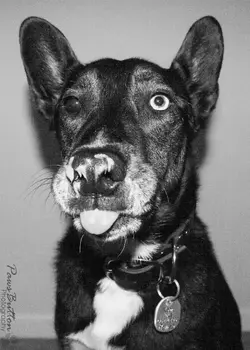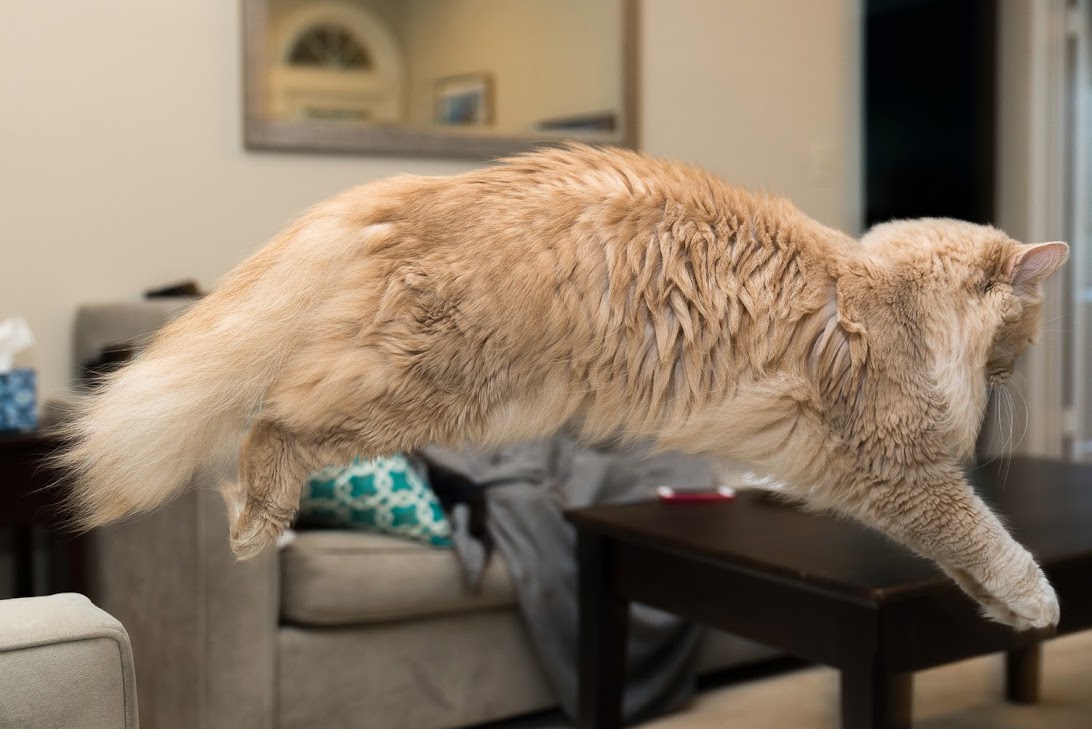I think what makes this difficult is that there are so many variables involved and there isn't any one technique that works 100% of the time. An entry level camera isn't going to have the AF speed of their more expensive counterparts. I am not knocking the camera, merely stating a fact. Some lenses focus faster than others. This doesn't necessarily mean that fast lenses (wide apertures) focus faster. Case in point: the Canon 50mm f/1.8 is a notoriously slow focusing lens. I think there are some fine shots in there. And there are some that can be improved. I might think the first thing to adjust is your expectations. I took my 4-year old nephew to the park one day. If memory serves, I snapped something like 180 images (and my nephew doesn't move nearly as fast as a dog!). Out of that, I think I had 10-images that I really liked. I remember I had five or six images of him standing at a captains wheel pretending to steer the boat and in only one of the images did I catch him so that I got his eyes as he was looking through the spokes. I guess what I am saying is that not every image is going to be a work of art. And especially when trying to capture fast moving pictures, your "keeper rate" is going to be minimal. The point is to know this and capture as many as you can (whilst trying to capture good images, not just slinging mud on the wall).
One thing to always keep in mind: be aware of the light. Might sound silly, but everything is based on the light. You like the image where the right side of the dog is lit? Position yourself so that is where the light is: lighting the right side of the dog. Maybe you don't get as many pictures, but hopefully more you like. The camera can't help where the light is!
Light impacts your ISO. You have to have enough light intensity in order to shoot at ISO 400. Moving into the shade might mean ISO 800 or 1600. If you don't like those ISO's, don't shoot in the lighting conditions that demand these ISO's!
Shutter controls motion. A fast shutter freezes motion. A slow shutter blurs motion. There are two types of motion: yours and the subjects. In all cases, motion is relative. A sleeping dog can be captured with a slower shutter than a running dog. Shutter speed is dependent on the light, especially if you want a fast shutter speed to freeze motion. The faster the shutter speed, the more light you need all else being equal.
Flash can be used to freeze motion, but in this case (outdoor shooting of a running dog), I don't think it's the best solution. The key to using flash to freezing motion is understanding that you are using the flash duration to freeze your subject.
Finally, can better lenses and better cameras improve things, such as AF speed. Sure. But that's the thing: they can improve things! Which goes back to establishing expectations. You won't get the same results using your current gear as you would with better gear. Otherwise, we wouldn't say the better gear can make a difference!
I do tend to have high expectations, but mostly in terms of progress and improvement rather than a finished product. I'd have a hard time removing that regardless-and sure it makes things challenging, but it also keeps me moving normally. I do think I can still improve with the gear I have, and its unfortunate that I can't just upgrade because I'm sure the difference would be wonderful but it has to wait

I think the problem is that I really don't like ANY of the shots in there. Some have nice aspects to them, but it's so easy to see the things I want to change. When the focus is off, it drives me nuts the most because you can't fix that in post-so that is what I would like to improve the fastest. There may not be any one technique, but almost none have been mentioned here as far as procedures go to figure out what I need. So far, I've started with my preferred ISO and shutter speed, and adjusted from there. I've been most comfortable with back button focusing since a week after I got my camera, so I've been using that. Using the flash has helped but I need a better way of setting up for sports-which I've seen and know is do-able.
Thank you for clarifying "This doesn't necessarily mean that fast lenses (wide apertures) focus faster." - what would I look at when purchasing a new lens to see how fast it does focus? Is there not a spec. for this, for a given focal length? Or is this based on reviews only? Is there a lens you recommend (preferably one that would work on both crop/full frame sensor cameras), or one specifically that is used? Just for a reference point, this won't happen for a while obviously. Gear does make a difference, but I would like to learn around this anyways

I know that it will change the ratio of shots I like, but 1-2 of 500 is a really awful ratio

Most of the ones I've posted I dislike, and would not post elsewhere except for learning purposes.
I was positioned on the correct side the entire time to have the light start with her darker eye...but I think maybe I need to choose a weekend where time is more flexible to shoot during? I've never really liked how full sun blows out my background if I'm exposing for Koda-in full sun we were shooting at 400 or 800 ISO so I really am not sure what else is going to give that intensity besides my solar simulator at the lab...which would burn a hole through things. What would you recommend as the best solution for freezing motion in this case, if not using flash to freeze? I have noticed that when I use it (indoors) it helps significantly, but I'm obviously still new to using it outdoors. Does anyone have suggestions on how to not have a dog you're trying to encourage to run around not knock over a tripod?

This is why I felt the flash would be beneficial-it gives me some control over the lighting (I also have one already that has HSS, and its used for other things as well)-since obviously controlling the time of day is not working as easily. It does mean I need to wait for her to hit a certain point, but she has solid stays and releases, so I can use that training to my advantage. So far, she's been great at helping me learn portraits since we've worked on posing for the camera in a stay







![[No title]](/data/xfmg/thumbnail/41/41797-ed370d68dae70f5b0a7252ec2d525912.jpg?1734176109)

![[No title]](/data/xfmg/thumbnail/31/31980-e5048a424621c7b3cd0d306d63c09d67.jpg?1734160756)
![[No title]](/data/xfmg/thumbnail/41/41799-fe172a668fba7717bf773664387d64aa.jpg?1734176110)






